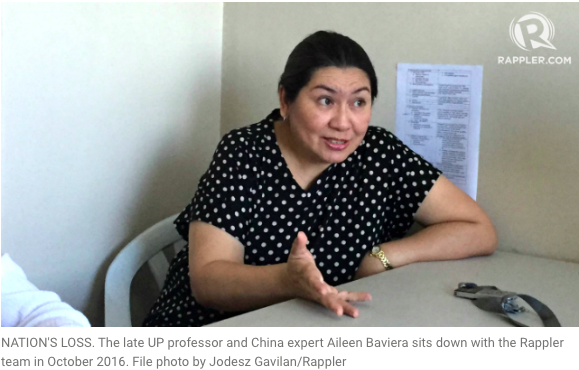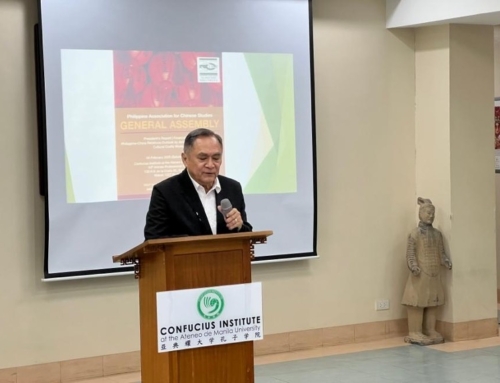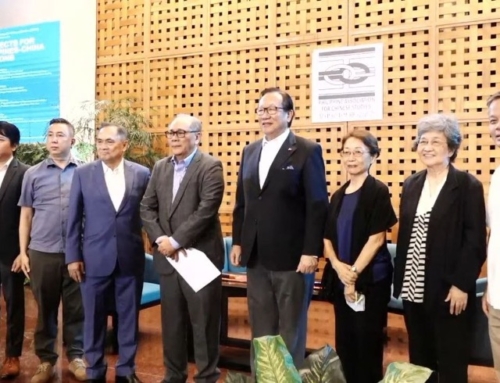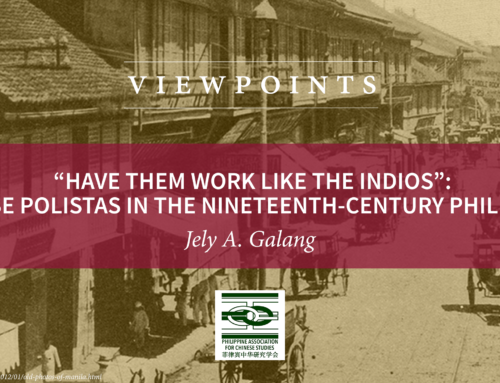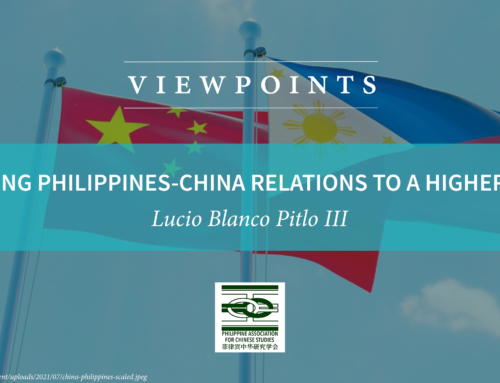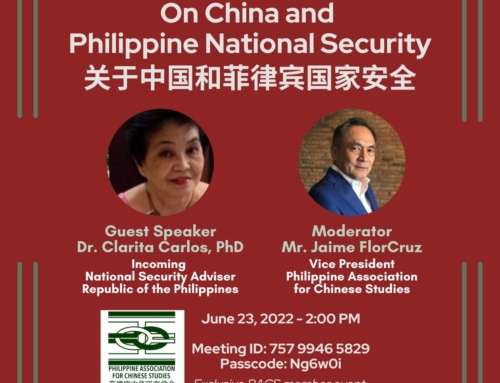In this 2019 essay, the China expert who died on Saturday, March 21, gives ‘unsolicited advice’ to young China watchers in the Philippines
Aileen San Pablo-Baviera Published 9:45 AM, March 21, 2020 / Rappler
MANILA, Philippines – We are reprinting below the essay of China expert and UP professor Aileen Baviera, who died of coronavirus on Saturday, March 21. It was first published in Tulay magazine in October 2019.A journey of a thousand miles begins with a single step. 千里之行,始於足下.For me, that first single step was deciding in 1979 to take graduate studies at the University of the Philippines and to specialize on contemporary China. This was what launched what has become a 40-year long sojourn – and counting – as a China watcher. Wherever my career path took me – at one time or another as an academic, an armchair activist , a government analyst, an author, an editor, a policy adviser, a public speaker on international relations, an advocate of people’s diplomacy, a keen observer of global affairs – sometimes nationalist, sometimes internationalist – China always rose to the front and center of my work.I was an idealistic college sophomore in 1977 when news of China’s Cultural Revolution first found its way into my consciousness. The revolution that Mao Zedong led in China had helped inspire many restless Filipino youth then steeped in struggle against the Marcos dictatorship.“Bombard the headquarters!” was Mao’s call to the Red Guards, calling on them to challenge authority. But exciting as that sounded to me, I was by nature too much of a bookish and quiet loner to do any real bombarding, and so found other, more boring ways to “serve the people,” so to speak. It also didn’t take too long before I learned to recognize and shun the shallowness of political propaganda when I saw it, Mao’s as much as Marcos’s.
My first visit to China was a two-year stint as a foreign student in Beijing. By then, I was a researcher working in the Philippine government (still under Martial Law), and became one of the first scholars to benefit from a Chinese government scholarship program.China in the ’80s. In 1981, the streets of Beijing were wide and tree-lined but nearly empty of cars, dust kicked up only by public buses, military trucks, Red Flag limousines for the “gaoji ganbu” (high officials), throngs of black bicycles at rush hour, and the occasional horse- or mule-drawn carts. At the time it was impossible to miss the ubiquitous huge statues of a smiling, waving or stern-faced Mao standing in front of major edifices. People addressed each other as “comrade.”China back then was still in the early stages of opening up and reform – starting with a household contract system intended to boost agricultural productivity (I wrote my Masteral thesis on this, and Benito Lim whose life we honor here today was my academic adviser). The trial of the Gang of Four was still news, and the regime didn’t quite know yet how fast and in what direction to move forward. Read more…
